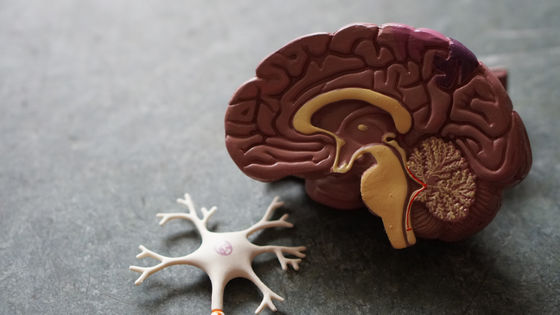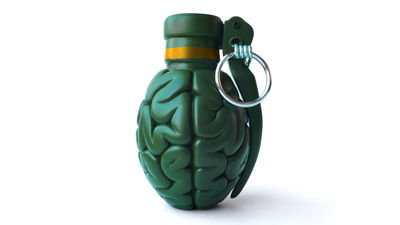It is reported that the brain of an old monkey was activated by injecting the anti-aging hormone `` Klotho ''

The protein '
Longevity factor klotho enhances cognition in aged nonhuman primates | Nature Aging
https://doi.org/10.1038/s43587-023-00441-x

Anti-aging protein injection boosts monkeys' memories
One shot of a kidney protein gave monkeys a brain boost | Ars Technica
https://arstechnica.com/science/2023/07/one-shot-of-a-kidney-protein-gave-monkeys-a-brain-boost/
In 1997, Dr. Makoto Kuroo , who belonged to the National Center for Psychiatry and Neurology, and his colleagues intentionally deficient Klotho showed signs of human aging, such as heart disease, cancer, cognitive decline, and organ failure. reported that early onset of symptoms was observed. In addition, Kuroo et al. have found that mice that produce a lot of klotho live about 20% to 30% longer than normal mice. In addition, it is known that in humans, the expression level of klotho decreases with age, and in adulthood, the amount of klotho decreases to about one-fifth of the amount at birth. thought to be involved.
In a 2014 paper by Duvall et al., a thinking and memory test of more than 700 human participants aged 52 to 85 found that one in five participants reported to have higher levels of and outperformed other participants.

Mr. Duval also
The research team selected ' working memory ', whose ability declines with age, as an analysis target for aging. Injecting a low dose of klotho into 18 rhesus macaques with an average age of 22, which corresponds to the age of 65 in humans, raised the amount of klotho in the body to the same level as at birth, and compared the ability of working memory before and after. I did.
The working memory ability test was conducted in the form of ``Can the research team place food in one of the multiple spaces and hide the food storage area for a certain period of time before hitting the food location?''. As a result of the test, the monkey's accuracy rate before injection of Klotho was about 45%, while the monkey after injection succeeded in identifying the location of the food with a probability of about 60%.

According to the research team, there were two versions of this test, one was a simple one with few correct candidates, and the other was a difficult one with many candidates. ``In simple tests, about 6% and in difficult tests, about 20% improvement in performance was confirmed in monkeys injected with Klotho,'' Duval reports.
The research team also conducted similar tests on monkeys several times over a period of two weeks. Although klotho was degraded in the body within a few days after injection, it was found that the effect of enhancing cognitive function lasted for about two weeks. On the other hand, Eric Burdin, CEO of
The research team also administered three different amounts of Klotho, 10, 20, and 30 micrograms per kilogram of monkey weight, and compared their effects. Then, it has been reported that the effect of improving cognitive function peaked out at a dose of 10 micrograms. Regarding Kroto's dosage, Mr. Verdin says, 'The higher the dosage, the better.' Duvall also speculates, 'What is needed for brain activation may not be an overdose of Klotho, but a replacement for the lost amount.'

The mechanism by which Klotho administration affects cognitive function and the reason for its persistence are not clear at this time. However, Mr. Duval said, 'This research gives us hope to study cognitive decline,' and strongly hopes to conduct human clinical trials in the future.
'Artificially increasing the amount of Klotho may have beneficial effects on human cognitive function,' said Goril Rolfseng Grontvedt of the Norwegian University of Science and Technology. In order to do so, it is important to conduct further research on the mechanisms by which Klotho acts.'

According to Burdin, if clinical trials are conducted, the first subjects will likely be older adults who are exhibiting cognitive decline. If safety and efficacy are confirmed in clinical trials on elderly people, it shows the view that clinical trials will be conducted on young adults. Ultimately, Kroto cannot be taken as a tablet, so Burdin speculates that it will be prescribed in the form of a pen-type syringe used for insulin injections.
Related Posts:
in Science, Posted by log1r_ut







